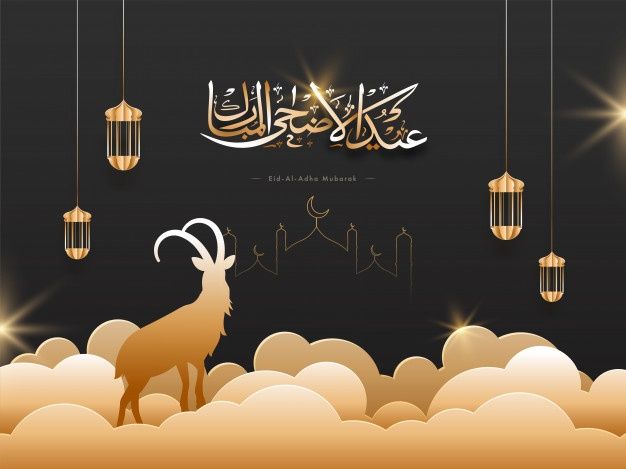Eid ul Adha 2023, also known as the Festival of Sacrifice, is a significant religious celebration observed by Muslims worldwide. During this auspicious occasion, adherents commemorate the willingness of Prophet Ibrahim (Abraham) to sacrifice his son as an act of obedience to Allah (God).
Moreover, families gather to offer prayers, share meals, and distribute meat among the less fortunate. Additionally, Muslims reflect, express gratitude, and strengthen their faith as they fulfill their religious obligations during this time of unity. Overall, Eid ul Adha holds great importance and unifies the global Muslim community.
What date is Eid-al Adha 2023?
Table of Contents
It is expected to commence on the evening of Wednesday, 28 June 2023.
How to celebrate it?
Eid ul Adha, also known as the Festival of Sacrifice, is a significant Islamic holiday celebrated by Muslims worldwide. In 2023, Eid ul Adha is expected to take place on July 30th, although the exact date may vary depending on the sighting of the moon.
To celebrate Eid ul Adha, here is a detailed guide on how to partake in the festivities:
Preparing for Eid ul Adha:
Cleanse oneself:
Prior to the day of Eid, it is customary for Muslims to purify themselves through ritualistic ablution or bathing.
Wear new clothes:
It is encouraged to wear clean and new clothes as a symbol of renewal and festivity.
Attending the Eid Prayer:
Visit the mosque:
On the morning of Eid, Muslims gather at the mosque to perform a special congregational prayer called Salat al-Eid.
Listen to the sermon:
After the prayer, a sermon is delivered by the Imam, who imparts spiritual guidance and offers reminders regarding the significance of Eid ul Adha. Additionally, the sermon serves to deepen the understanding and appreciation of this important occasion among the worshippers.
Performing the Sacrifice (Qurbani):
Obtain an animal:
Muslims who can afford it may purchase a sacrificial animal, such as a goat, sheep, cow, or camel.
Perform the sacrifice:
The sacrificial animal is slaughtered in accordance with Islamic traditions, adhering to specific guidelines and prioritizing the well-being of the animal. Moreover, meticulous care is taken to ensure a humane and respectful process during the sacrifice, upholding the principles of compassion and reverence.
Distribution of meat:
The meat from the sacrificed animal is divided into three parts: one for the family, one for relatives and friends, and one for the less fortunate. Additionally, this practice of sharing the meat promotes unity and compassion within the community, strengthening the bonds among individuals and fostering a sense of collective responsibility towards those in need.
Expressing Gratitude and Celebration:
Congratulate and exchange greetings:
Muslims greet each other with “Eid Mubarak,” meaning “Blessed Eid,” and embrace one another as a sign of joy and unity.
Visit family and friends:
It is customary to visit relatives and friends, share meals, and exchange gifts.
Indulge in festive meals:
Special meals are prepared, including traditional dishes, sweets, and desserts, to mark the joyous occasion.
Engage in acts of charity:
Muslims are encouraged to give to the less fortunate by donating money, food, or other essential items.
Reflect and Rejoice:
Reflect on the sacrifice of Prophet Ibrahim:
Eid ul Adha serves as a reminder of Prophet Ibrahim’s willingness to sacrifice his son and his unwavering faith in Allah’s command.
Express gratitude to Allah:
Muslims take time to express gratitude for the blessings in their lives, showing appreciation for the opportunities and provisions bestowed upon them. Furthermore, they reflect on their fortunes and extend heartfelt thanks to Allah for the abundant blessings and provisions that have enriched their lives.
Throughout the celebration of Eid ul Adha, Muslims actively participate in various rituals and traditions, fostering a sense of unity, compassion, and gratitude within the community.
Conclusion:
In conclusion, Eid ul Adha is a momentous occasion for Muslims worldwide. It is marked by active engagement in acts of worship, unity, and compassion. Through prayers, Muslims reinforce their faith, express gratitude, and strengthen their bonds within the community. They also actively engage in sacrificial rituals and distribute meat to the less fortunate. Furthermore, Eid ul Adha truly embodies the spirit of devotion and selflessness, fostering a sense of unity and generosity among its observers.
FAQs:
What is Eid al-Adha and why is it celebrated?
Eid al-Adha is a celebration observed by Muslims worldwide. It commemorates Prophet Ibrahim’s willingness to sacrifice his son as an act of obedience to Allah. Moreover, this significant event serves as a reminder of unwavering faith and serves as a symbol of devotion and submission to the divine will.
What do Muslims do on Eid-ul-Adha?
On Eid-ul-Adha, Muslims offer prayers, perform animal sacrifices, distribute meat to the needy, visit family and friends, and engage in acts of charity.

